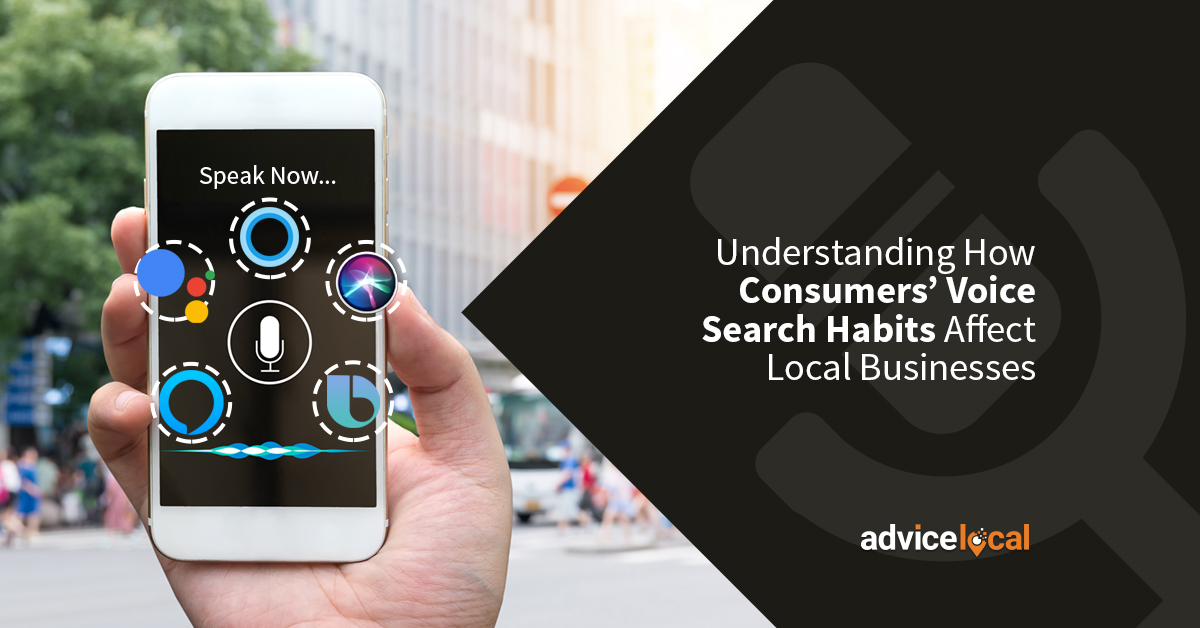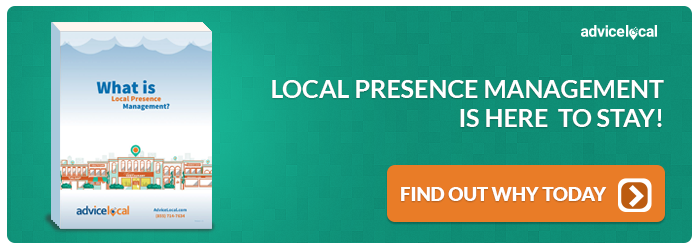Tired of hearing about voice search? Well, buckle up, because there’s still a lot of ground to cover! Today I’m about to reveal just how important voice search habits are to local businesses.
If you thought you already knew how and why people use voice search, just wait until you learn more about this recent survey, conducted by Chatmeter. It puts even more emphasis on understanding local consumers and what they want from businesses (and voice search).
Why Do People Use Voice Search?
We know that more and more people are using voice search, but it’s important to understand why. Tapping into people’s motives gives businesses a better idea of what customers want, what they’re expecting and how businesses can provide them with results. Obviously, customers are looking for something: what is it?
According to Chatmeter, 52 percent of consumers prefer voice technology simply because it’s convenient. There’s no typing or dealing with autocorrect, and it pulls up an answer straight away. Thanks to hands-free voice searches, users can multitask while asking the Google Assistant for answers, using it when they’re washing dishes or driving. Another 23 percent of the people surveyed said they enjoy the novelty of the technology. It’s one step closer to the technology-driven future we’ve all envisioned.
What do these survey results tell us? Consumers want fast results in an easy-to-understand format so they can spend as little time and energy searching as possible. Local businesses should take advantage of the reason why consumers are using voice search.
- Are they looking for directions while driving? Make sure the business is listed on mapping apps like Apple, Waze and Garmin.
- Are they looking for a phone number? Make sure the business’ NAP (name, address and phone number) is accurate and syndicated to all major data sources, including data aggregators, business directories and vertical-specific directories.
- Do they want to impress their friends by getting an answer to a specific query? The business should focus on getting as many featured snippets as possible!
How Many People Are Using Smart Devices?
You might think voice searchers are a small part of the population since they must own a smart speaker (like the Amazon Echo, Apple Homepod or Google Home) or a smartphone. Not everyone has those. However, the number of people with access to these devices is growing day by day.
Chatmeter found that 61 percent of consumers today own a smart speaker, with 51 percent of them using it daily. These aren’t just fun devices installed or purchased to impress people; they’re useful objects that have become an everyday part of how people shop, eat, research, travel and take care of themselves. Even if people aren’t using their voice assistants on a daily basis, a solid 29 percent of them are using it at least once a week.
It’s no surprise that most people have voice assistants on their cellphones. Nine out of every 10 cellphone owners use voice assistants on their phones. Roughly 51 percent of these people use the assistant for voice search daily, while another 33 percent use it at least once a week. Do these numbers surprise you? Keep in mind we always have our phones in our hands.
Before you know it, almost everyone in the United States will be relying on voice search. Failing to optimize for that future is a risky move, especially on the part of local businesses.
Where Does the Local Aspect Come into Voice Search?
Why do I say that local businesses need to optimize for voice search more than any other kind of company? Because people use voice search to find things that are close to them. Chatmeter found that about 27 percent of those surveyed use their devices to find a restaurant, shop or business within their vicinity. The “near me” phrase is completely changing how people search, especially with voice assistants.
According to a study by BrightLocal, local businesses must meet the following criteria to show up in SERPs for voice searches.
How Close the Business Is to the Searcher
Because so much of voice search revolves around people searching for businesses near them, it’s vital that local retailers, restaurants, and service area businesses indicate that they are nearby. Even if people don’t specifically search for something “near me,” the Google Assistant will still base its voice search results on proximity to the searcher. I can’t overstate the importance of establishing a local online presence with complete information, including the business’ address.
How the Business Interacts With Reviews
Managing and responding to reviews, both good and bad, can give businesses a stronger local presence and encourage nearby customers to connect. Many local businesses only respond to negative reviews that drive their ratings down, but the smartest ones establish connections with both happy and unhappy customers.
How Many Backlinks the Business’ Site Has
Google wants to pull voice search results from websites that have established their authority on the subject matter. SEO and backlinks go hand in hand, and that doesn’t change just because people are searching with a voice assistant instead of typing. Link building allows web crawlers to find a business’ content, index it, and decide if the website has a good reputation.
How Active the Business Is on Social Media
Search engines, including Google, usually only pull voice search results from the top three listings or the featured snippet. Therefore, placing high in search results is vital for local businesses. One way to improve placement is to share content like blogs, press releases and newsletters across social media. Optimize the business’ social media profiles and don’t be afraid to engage with local customers via Twitter, Facebook and other relevant platforms.
How Visible the Business Is on Industry-Specific & Local Directories
As I said before, claim your listings! We’ve talked about this hundreds of times, but whether you manually submit to directories or use aggregators, it’s vital that local businesses establish a presence within all relevant directories. People simply won’t trust a business if it doesn’t have a Google Business Profile (formerly Google My Business) listing, for example.
The above criteria is important, but local businesses must pair these strategies with other voice search ranking factors, like having a secure site, a fast loading time, informative content and authority.
Voice Search Optimization for Local Businesses
If you’re just now diving into the world of voice search optimization, don’t worry – we’ve got you covered with an extensive roadmap on the subject. At Advice Local, we’ve been researching the voice search for a while, so we’re more than ready to help local businesses jump on the bandwagon.
Want to know if a business is voice search-ready? Take our voice search readiness test. And, if you want to know how we help local businesses get found in voice search, request a demo today!




